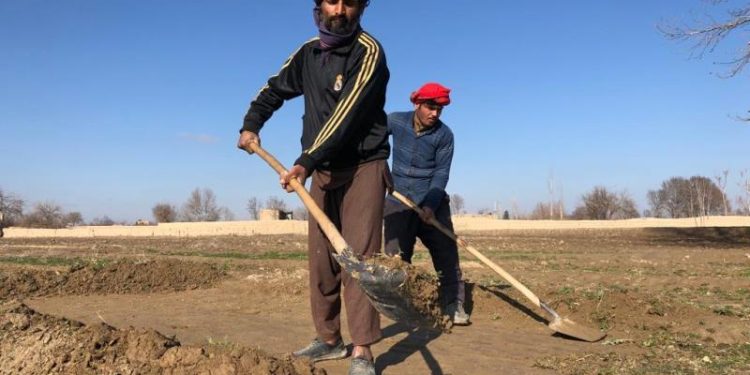#ClimateChange #AgricultureCrisis #DroughtImpact #SustainableAgriculture #FarmersStruggle #ClimateAdaptation #PrecipitationDecline #AgriculturalInnovation #WaterManagement #ClimateResilience
Climate change has cast a dark shadow over the once-thriving agriculture sector in Northern Balkh province, leaving farmers grappling with an unprecedented drought. Khwaja Habibullah, a seasoned farmer with four decades of experience, expressed his astonishment, stating, “I have never seen such a serious drought in my life.” The implications of this climatic shift have reverberated through the agricultural community, spelling financial losses for farmers.
Abdul Sami, another farmer, painted a grim picture of the situation, noting a significant drop in crop yields attributed to the scarcity of rains and snowfall. He emphasized the crucial role of precipitation in protecting crops from pests, stating, “If it does not rain or snow that protects crops from pests, most of the crops will dry up.” Gull Mohammad echoed these concerns, expressing worry about rain-fed crops failing to grow and the inadequacy of available water for irrigation.
Provincial officials, including Mohammad Hussain Azimi of the Agriculture, Livestock, and Irrigation department, acknowledge the severity of the drought. Azimi highlighted the drastic reduction in precipitation, stating, “It rained around 200 millimeters and 500mm annually in the past, unfortunately, it rained only 8mm this year.” This alarming decline in rainfall, compared to previous years, poses a significant threat to the agriculture sector.
The crisis extends beyond Northern Balkh, with Kabul and other provinces also experiencing reduced rainfall. Farmers, agronomists, agricultural engineers, and stakeholders in the agricultural community must confront the harsh reality of climate change’s impact on their livelihoods.
The alarming decline in precipitation in Northern Balkh and other provinces poses a severe threat to the agriculture sector, jeopardizing the livelihoods of farmers. As climate change continues to manifest in unprecedented ways, urgent measures are required to mitigate its impact on crop yields and financial stability. Stakeholders must collaborate to implement sustainable practices, resilient crop varieties, and water management strategies to adapt to this evolving climate reality.































